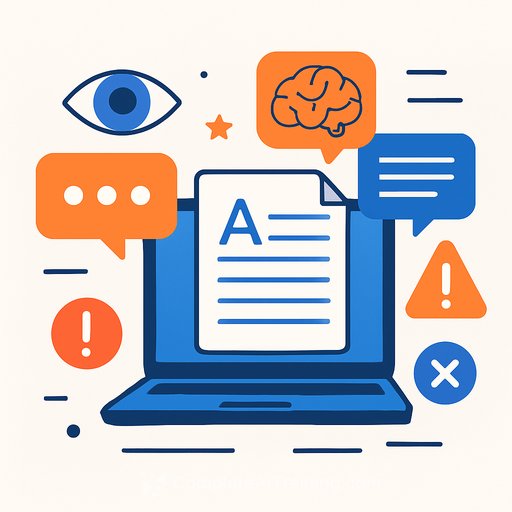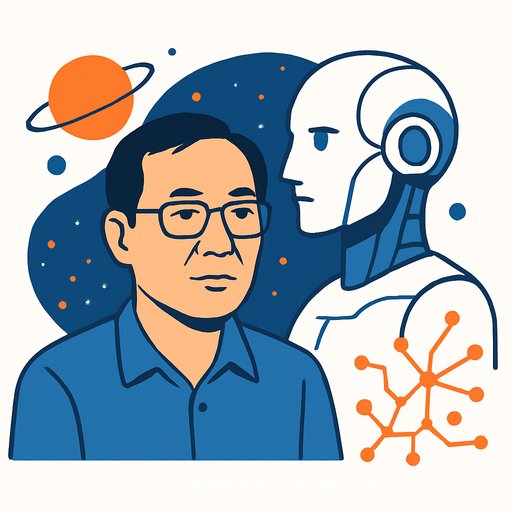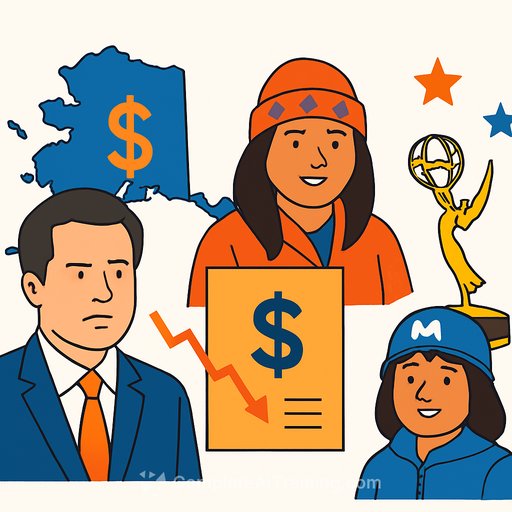Tom Comitta's "People's Choice Literature": Choosing to Be a "Bad" Writer to Make Better Work
Tom Comitta built two novels from a poll of what Americans most and least want to read - and then bent every genre and character rule they could. The result, "People's Choice Literature: The Most Wanted and Unwanted Novels," treats "bad writing" as a craft choice that can surface truth, surprise, and momentum.
For writers, this is a useful lens: flip your defaults, pressure-test your taste, and let constraint do the heavy lifting. Comitta also collaborated with an early large language model to challenge their own subjectivity - years before chatbot culture took over.
The spark: celebrate the "opposite of taste"
The seed was Dave Soldier's experimental project "The People's Choice Music," which stitched together what listeners claimed to most and least prefer. It embraced the awkward corners of culture that rarely get airtime and turned them into a mirror.
Comitta also cites painter Martin Kippenberger's choice to make the "worst" paintings after painting was declared dead - a move that unlocked honest, weird work. That same spirit guided the novels: go where taste refuses to go, and see what emerges.
The "worst writer" method (that kills writer's block)
As a young poet, Comitta decided to write the "worst" poems on purpose - combining styles and subjects that felt wrong. Paradoxically, it produced more honest work and removed the fear of failure.
- List your "good writing" rules. Write a new page that breaks three of them.
- Combine two tones that clash (ex: lyrical + technical manual) and commit for 1,000 words.
- Pick a constraint from reader bias (ex: "no adverbs," "no backstory") and exaggerate it.
- Ship it to a small audience. Watch what actually moves people, not what you think should.
Building "Most Wanted" and "Most Unwanted" novels
Working from poll data, Comitta leaned hard into convention: for one book, the most requested tropes; for the other, everything readers say they avoid. Genre, structure, and character are pushed until "novel" itself feels up for debate.
The point isn't shock. It's to expose how taste scripts your choices - and give you a lever to break the script on purpose.
Why use an LLM - and why the interface matters
Comitta collaborated with an OpenAI model in 2021 via the Playground - a text box built for co-writing, not chatting. That interface made the model feel like a partner you can push, remix, and iterate with, instead of a polite assistant answering prompts.
They argue that chatbot culture trains passivity. Writers benefit from tools that provoke, not serve. Treat models as collaborators under your constraints.
- Try the original flow: OpenAI Playground
Use AI like a collaborator, not a vending machine
- State your constraint first (ex: "compose a scene with zero metaphors; only concrete actions").
- Iterate in the same document. Edit its output and ask the model to continue from your edits.
- Force disagreement: "Give me three versions that contradict the last paragraph."
- Alternate voices: your paragraph, model paragraph, repeat - then merge.
- Audit for taste creep. Circle where you defaulted to safe choices and rewrite those lines worse on purpose.
Practical takeaways for working writers
- Constraints beat inspiration. Choose one constraint per session; finish something small.
- Write the "unwanted" chapter of your project. Keep what surprises you.
- Separate drafting from taste. First pass: break rules. Second pass: keep what's alive.
- Use AI to create friction, not answers. Your job is direction and selection.
- Measure by reader response, not comfort. If it stings a little, you're probably close.
Event
Tom Comitta reads from "People's Choice Literature: The Most Wanted and Unwanted Novels" and "Patchwork" at 7 p.m. Monday at Harvard Book Store, 1256 Massachusetts Ave., Harvard Square, Cambridge. Free.
Want more on AI for writers?
Here's a curated tool stack for practical writing workflows: AI tools for copywriting.
Your membership also unlocks:






